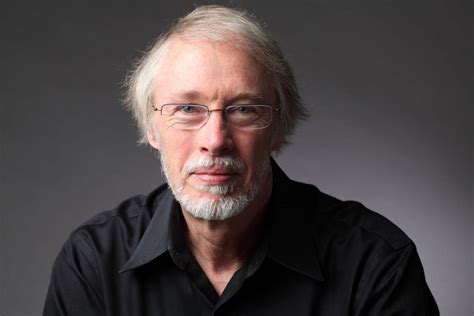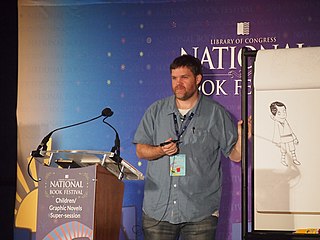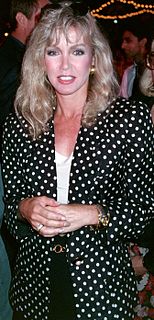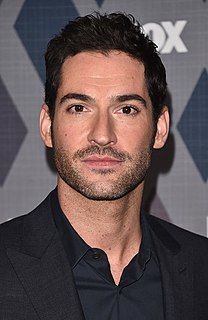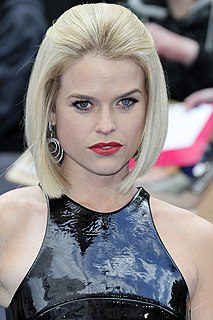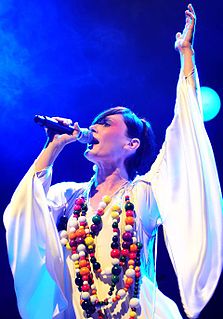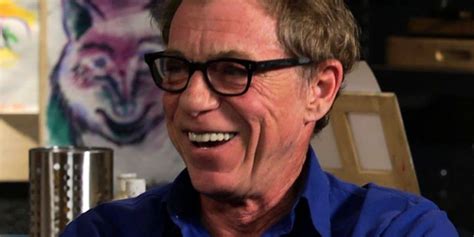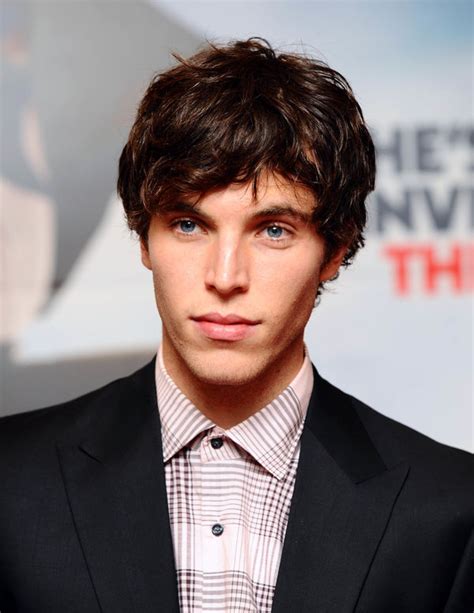A Quote by Donald E. Westlake
There are a couple of writers I admired who were very good at giving the character's emotion without stating what that emotion was. Not saying "He was feeling tense," instead saying, "His hand squeezed harder on the chair arm," as if staying outside the guy. I wanted to try doing that. I wanted to have a really emotional story in which the characters' emotions are never straight - out told to you, but you get it.
Related Quotes
I'm a playwright by trade, and in theater, writers have complete control over everything. Nobody can change a word without your permission. I've had a couple screenwriting experiences that weren't terrible, but they were typical, where executives came in and gave you sometimes good notes and sometimes horrible notes - but they wanted to change the movie that everybody had agreed to make. After a couple of times, it's like, "Why are we doing this?" The story is not going to turn out very good when 13 people are writing it together.
I never really approach any project or story thinking of themes first or what a certain character 'represents.' Maybe other writers do, but for me, it just starts with the characters and a certain emotion I want to convey. It usually isn't until I get deeper into a book and look back a bit that I start to see the themes, etc.
What I really wanted to do was take this character and go beneath the veneer of Lucifer. Underneath it all, there was a guy who was a hurt soul and rejected from his father. How that played upon his choices was kind of interesting, but also it's going inside a shell of someone who doesn't know what an emotion is.
It's all emotion. But there's nothing wrong with emotion. When we are in love, we are not rational; we are emotional. When we are on vacation, we are not rational; we are emotional. When we are happy, we are not [rational]. In fact, in more cases than not, when we are rational, we're actually unhappy. Emotion is good; passion is good. Being into what we're into, provided that it's a healthy pursuit, it's a good thing.
Some people say, "Sometimes I have violent thoughts, what can I do?" So I say, "Well, have them!" Cos we should not try to control ourselves. It's very bad to control ourselves in this sense. If you have any emotion at all, if its a bad emotion or good emotion, think about it, you should just understand that you have those emotions. And it's good because we are people and we have all these emotions. And the result of that is you would become more and more peaceful. If you don't let those emotions be inside of you then you become extremely violent.
In film, the camera can get an array of shots so the audience can see the emotion the character is giving off. Using close-ups on the characters face really helps get the message across. On stage, you cant do that. But the stage has that live feeling that you cant get anywhere else because the audience is right there.
I did not want to be the accompanist to an operatic star. But I was at a very high level for a 16-year-old, and I maintained that. So really good, but more impressive than classically trained. So I had to take a crash course in classical technique because I really wanted to get away with playing this character [in Florence Foster Jenkins] without people saying, "That's not really accurate."
I guess it was this over-riding feeling I wanted people to get from the album - a kind of positivity. On the one hand it's quite a sad record, but I wanted the songs in essence to be about pulling yourself out of a difficult time. So I thought that the idea of day after a really long, difficult night, would be pretty appropriate... I think the album's about contrasts too - contrasts of emotion - so I thought the comparison was appropriate.
The secrets that the characters hold are held back from the audience, and that's such a delight to hold onto. When you're playing scenes, it gives you an inner dialogue that allows you to really immerse yourself as the actor, in every scene that you're playing. Nothing felt expositional. Nothing felt like we were just doing it to move the story along. There was a reason these characters were saying what they're saying. It was a gift, really.


